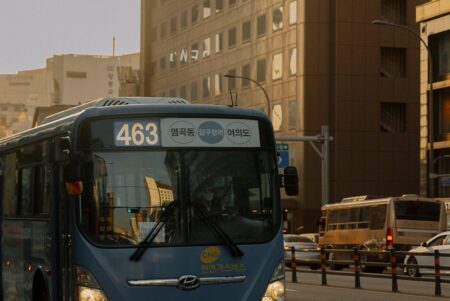Au pairs are sold a cultural experience, but many families treat them as cheap labor. Agencies should kick these families out of the program.
Au pairs agree that they should be paid more. But would higher wages turn them into live-in child care workers and remove the cultural exchange component of the program?
They Don’t Tell You All
The au pair agency is advertised as a cultural exchange and an educational opportunity, but it’s mostly a live-in domestic worker job. That’s why it’s so important for au pairs to do their homework. Before they sign up, they should read about the work rules and requirements of their host families, discuss with the family what their expectations are, and consider whether they are a good match for each other.
Unfortunately, many au pairs don’t get that education before they start. They are given a form to fill out by their host family, but it doesn’t include the most important information about their working conditions. The form includes basic details like the hours they are expected to work (usually up to 45), but not that the host family must pay them for overtime or provide them with a private bedroom or bathroom. It also says that au pairs may be required to cook meals for the entire household, which many au pairs find difficult because of their limited kitchen space and cooking skills.
Au pairs often have to eat leftovers or go out to eat, and the host family rarely makes time for them to attend classes they need to take in order to improve their English. Mabel, an au pair who works for a Massachusetts family, says the low wages put the cost of her classes out of reach and that she is not able to travel during her free time because her hosts won’t let her.
The problem is that, as this Comment points out, au pair agencies receive more money from the host families than they do from au pairs, so they are disincentivized to intervene in exploitative situations and remove bad families from the program. As a result, au pairs are left in abusive arrangements and are unable to access help.
In response to this widespread problem, some au pair advocates have proposed changes to the program. These changes include allowing au pairs to participate on a part-time basis, raising the maximum full-time workweek from 45 to 40 hours, creating paid sick and vacation days, outlining the duties of both au pairs and host families in advance, prohibiting privacy invasions like putting cameras in bedrooms and bathrooms, improving vetting procedures for both au pairs and hosts, and creating reporting requirements.
They Don’t Tell You About the Money
Despite the fact that many au pairs do have good experiences and are able to develop deep relationships with their host families, a large number of them find themselves in abusive situations that they can’t talk about publicly or even to their agencies. They can be forced to do a lot of extra work outside of child care. They can be asked to cook for their hosts and do grocery shopping or other household chores that are not in the contract. They are often not paid the agreed upon amount of pocket money.
They can be denied access to the internet in the home. They can be asked to stay late and put in extra hours because they are needed. And of course, they are not allowed to take time off without being threatened with termination. These au pairs have no one to turn to. They are often forced to rematch with another family within two weeks or risk losing their visas and being sent back to their home countries.
In the cases of abuse, au pair agencies do not seem to take action quickly enough to protect their workers. They have a reputation for being more concerned with getting their fee than with supporting au pairs in troubled situations. Au pairs report that they are afraid to complain because they fear the host family will be upset and they might not get their visas back. They also worry that their agency might report them to the government and they will be banned from the program.
Some au pairs also report that their employers will steal money from them. They will count babysitting as work or volunteer hours that they did not earn or they may use fake childcare centers to show a high number of child care hours. These hours are not legitimate and it is very easy to do this because of the language barriers, but it can cause serious problems for au pairs.
In the article, Politico Magazine makes a mistake by confusing “incidents” with “complaints.” The author quotes au pairs who are anonymous and cannot be verified and then states that there are a lot of incidents in the program. It is a shame that the article and the title of the article demonizes a wonderful program that has helped create tens of thousands of profoundly deep relationships across cultures, borders, and generations.
They Don’t Tell You About the Language

Many au pairs come to America from countries where English isn’t widely spoken. As a result, they often need to learn the language while on the job in order to communicate with their families and friends. This isn’t an easy task, especially in rural areas where there are fewer resources for adult education and language training. In fact, according to the Institute for Research on Poverty, nearly a quarter of all au pairs speak English as a second language.
This is a huge problem for au pairs and can even affect their quality of life. If an au pair is not fluent, they may feel isolated and have trouble finding jobs or making friends in their new community. In some cases, this can lead to depression and other mental health issues.
There are many ways to improve this situation, including increasing au pairs’ wages and changing the way they’re matched with host families. But the agencies that run the program seem reluctant to do so, as they mostly rely on host families for income. They also have a conflict of interest: they’re often the ones who receive complaints from au pairs and are responsible for getting them placed with a family.
Agencies are also reluctant to kick rogue families off the program. Any au pair can tell you stories of friends who were abused or mistreated by their hosts, who were expected to work extra hours or weren’t given a place to sleep. The agencies could be more aggressive in kicking these families off, and they should do a better job of educating au pairs on their rights in case they find themselves in bad situations with their hosts.
It’s not hard to see why there is a push for reform of the au pair program. Many au pairs feel they are underpaid, and the current pay structure is a lot closer to domestic worker minimum wage than it should be. But if you increase their pay, you risk turning them into a regular child care worker and taking away the cultural exchange component of the program.
They Don’t Tell You About the Culture
The au pair program is designed to bring foreigners into a family and share their culture. But what happens behind closed doors often surprises au pairs and leads to abuses. Those who speak out have a hard time getting their voice heard because the au pair agency and host families are often one and the same, and they both have an interest in keeping the issue quiet.
Many au pairs are afraid to tell their stories publicly because they don’t want to ruin the family’s good name. In addition, if they report problems they may lose their visas and get sent home. And even when au pairs do speak out, their concerns are ignored. “The government has only 30 staff members for the whole J-1 visa au pair program, and they don’t have any resources to review complaints,” said Arnold. Au pair companies, which make money from au pair placements, do little to monitor their own program and rely on a small number of staff at the State Department to investigate complaints.
Some au pairs also have trouble adjusting to American life. Many are surprised that children here are a lot more active than they are used to in Europe and find it difficult to entertain them. Others are unaccustomed to the fact that children address their caretakers by first names, which is considered disrespectful in some cultures. And they are often shocked to learn that American parents expect them to babysit for hours on end while they go out to work, run errands, or attend school or social events.
The good news is that reform efforts are underway. The Alliance for International Exchange, an au pair lobbying group that represents 13 au pair agencies and hosts families, is spending over $500,000 to push for new regulations. But some advocates warn that these attempts at reform don’t go far enough and could jeopardize the cultural exchange aspect of the au pair program.
Ultimately, the best way to avoid these problems is to choose a legit au pair agency and to be an informed au pair who sets clear boundaries with their host family from the beginning. For example, it’s important to discuss and agree on a schedule of weekly and monthly meetings for the purposes of communication and conflict resolution.



